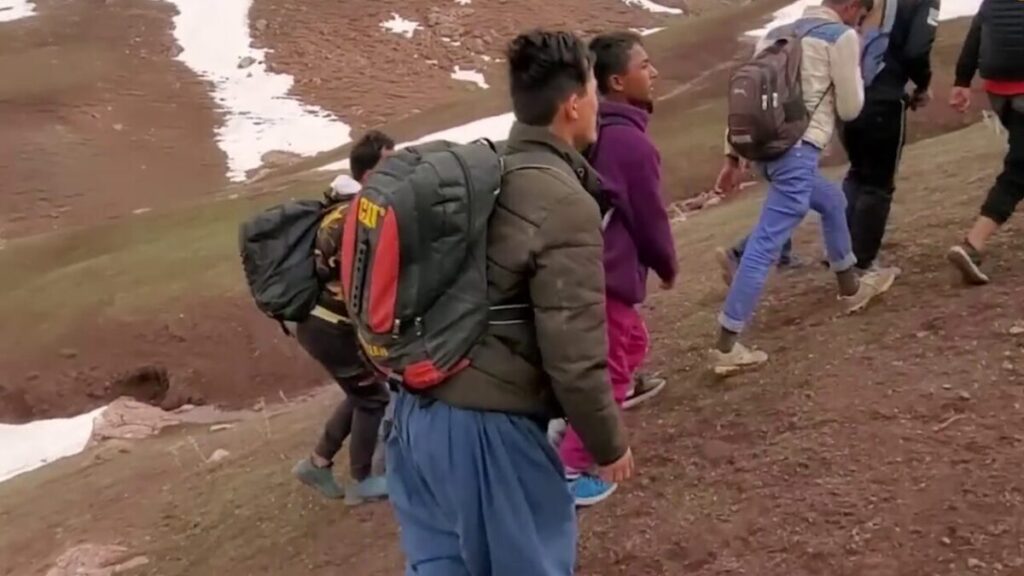Residents of Nimruz province report that human trafficking remains widespread despite a decree by the Taliban Supreme Leader. They claim that the trafficking network operates openly in the province, particularly from Zaranj city to the Iranian border. Instead of taking effective action, Taliban officials have focused on public messaging, instructing mosque clerics to preach against trafficking and putting up banners in the city.
Two weeks ago, Mohammad Qasim Khalid, the Taliban governor of Nimruz, announced that the “Duk” border was closed to traffickers. However, local sources refute this claim. They state that human trafficking continues daily through this border, with little resistance from the Taliban.
According to some traffickers in Nimruz, Hibatullah Akhundzada’s decree banning human trafficking has had no real impact. They allege that local Taliban officials are complicit in the trade. These officials reportedly accept payments from traffickers in exchange for permits, enabling the illegal transport of people across borders.
One trafficker, using the pseudonym Fazl Ahmad, described how they operate. He said they pay local Taliban members, who issue “receipts” for the trafficking caravans. For each vehicle carrying passengers, the Taliban charge 530 Afghani per permit. These permits allow traffickers to pass freely. Fazl Ahmad noted, “We continue our work as usual. The Taliban benefit financially from every vehicle we send.”
Another trafficker, Gul Ahmad, also using a pseudonym, claimed that some Taliban commanders manage the trafficking networks in Nimruz. He said, “The same people who claim to fight trafficking are the main players profiting from it.” He added that the Taliban collect a minimum of 10,000 Afghani daily from traffickers’ vehicles.
Gul Ahmad further alleged that many Taliban members, or their relatives, are involved in trafficking. He remarked, “This is a border province, and very few Taliban members here are not involved in drug or human trafficking.”
Despite these allegations, the Taliban’s Ministry of Information and Culture in Nimruz has displayed banners in the city. The banners declare, “Human trafficking is a crime against humanity” and emphasize the regime’s supposed commitment to fighting the practice.
Previously, the Taliban Supreme Leader issued a decree outlining six points to combat human trafficking. It instructed local commanders to prevent trafficking and imposed punishments for violators. However, most traffickers claim they are unaware of this decree. They continue their operations in partnership with local Taliban officials, alleging that these officials profit heavily from the illegal trade.
Human trafficking in Nimruz thrives despite the Taliban’s public stance against it. The claims of corruption and complicity raise serious questions about the group’s commitment to combating this crime.


